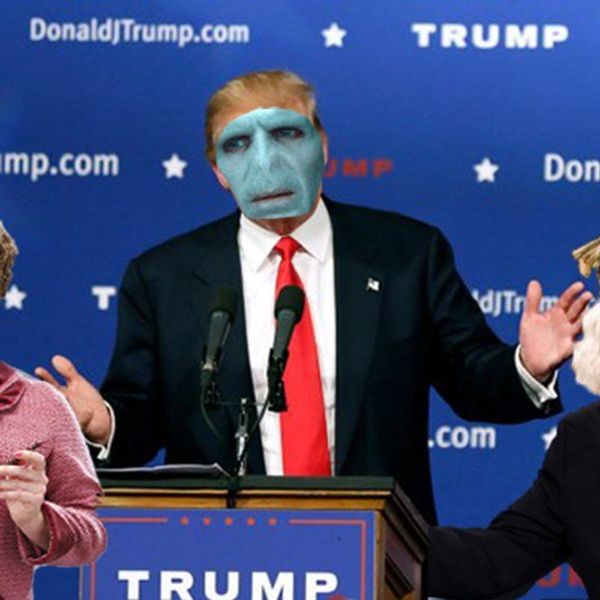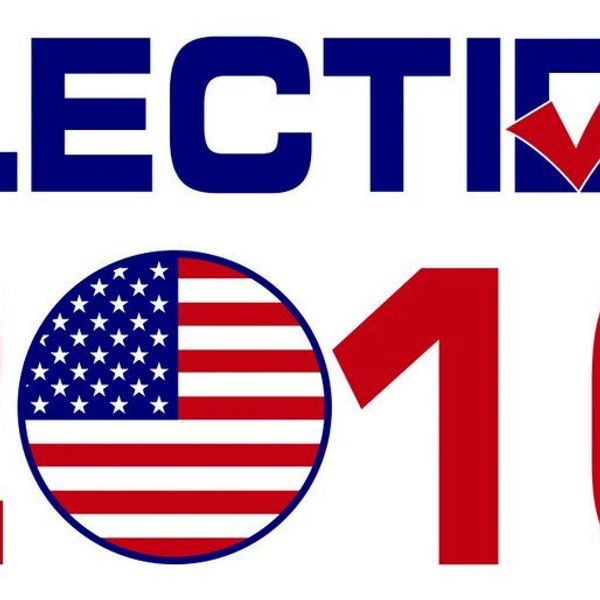Let's face it. No matter who you support this election cycle, both Hillary Clinton and Donald Trump are incredibly disliked not only outside of their party but from within as well. In fact, the two major party nominees have historically low favorability ratings. I've seen bumper stickers supporting "Giant Meteor 2016" with the tagline "Just End it Already." This pessimism towards Clinton and Trump has led a significant number of voters to consider voting for various third party candidates such as the Libertarian Party's Gary Johnson and the Green Party's Jill Stein. However, this will not translate into a political foothold for these parties - and even if it did, there would be little change in the two-party system.
Now this may seem pessimistic or dismissive at first, but it is just in the way our elections are set up. I am a layman in this regard, but this is how I understand it. You see, the United States of America is based around the "First Past the Post" voting system. That is, we give one office to the candidate with the largest number of votes. This sounds good at first, but often at first leads to a candidate with a small fraction of the vote winning it all. Over time, voters see this and consolidate their votes with the most popular candidate that most resemble their views. This is why we have had only two major parties for most of our history, even if the specific parties change, as well as why the parties are so ideologically diverse. You can have politicians ranging from Theocratic Ted Cruz to Libertarian Rand Paul to Moderates Lindsey Graham to of course Donald Trump all in one GOP. Conversely, the Democrats have everyone from Socialists like Bernie Sanders to Moderates like Tim Kaine to "Third Way" Democrats like Bill Clinton to Hillary Clinton herself. This "big-tent" philosophy allows many different ideologies to consolidate manpower to advance their common goals, albeit slowly and deliberately. Any fracturing from this "big tent" will never win, as well as risk the success of their former parties through the "spoiler effect" - reducing the proportion of the population's support just due to the presence of the third party. (YouTuber CGP Grey provides a more in-depth explanation of all these concepts.)
So let's say either Johnson or Stein pull off the impossible and wins some electoral votes. What happens then? Frankly, even a higher level of exposure won't even help these parties get elected into more offices around the country due to their ideological extremity. For example, the libertarian party's debates exposed something about its soul that is unappealing to most mainstream views, whether it was when a candidate was booed for opposing child consumption of heroin or when the candidates had disagreement on whether they would sign the civil rights act. On the green side, Jill Stein has given anti-vaccination activists a voice as well as call for stricter environmental reform, both fairly unpopular outside of her base. The two traditional parties enjoy success due to their mainstream, digestible views - fringe ones from third parties simply cannot attract wide support.
If you want to vote for a third party for some form of ideological purity or copping out of two unlikable choices, you are either playing the role of spoiler in a swing-state or meaningless cop-out in a non-wasted one. The truth is that only Hillary Clinton or Donald Trump will be sworn in November, so hold your nose and vote for the candidate under which you see the best future for America.





















